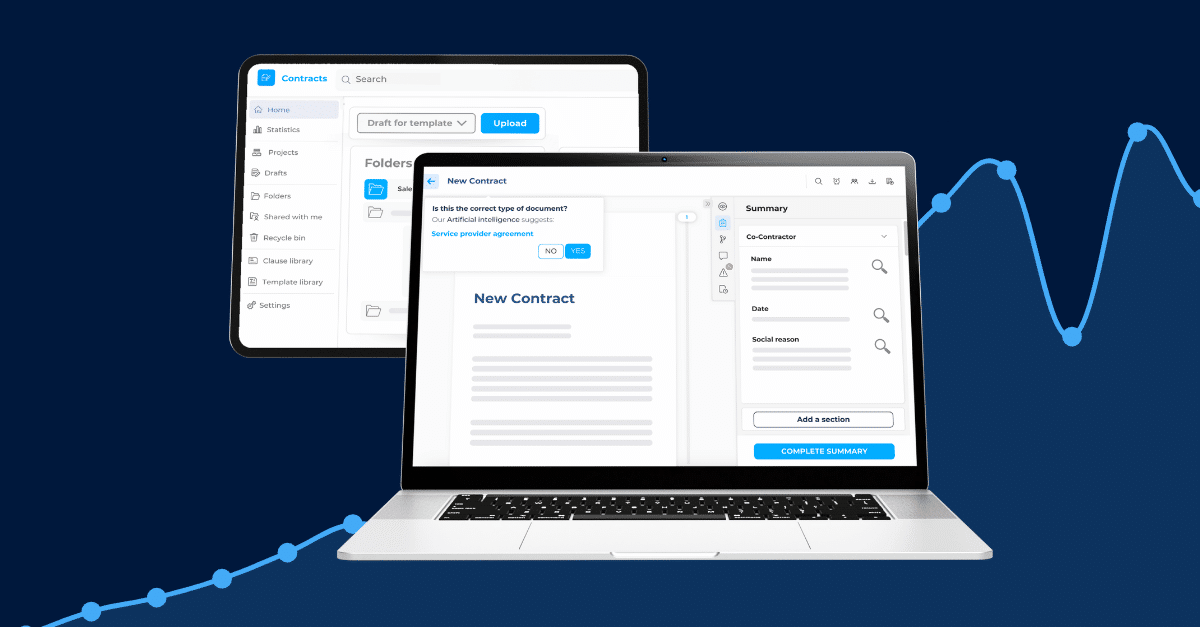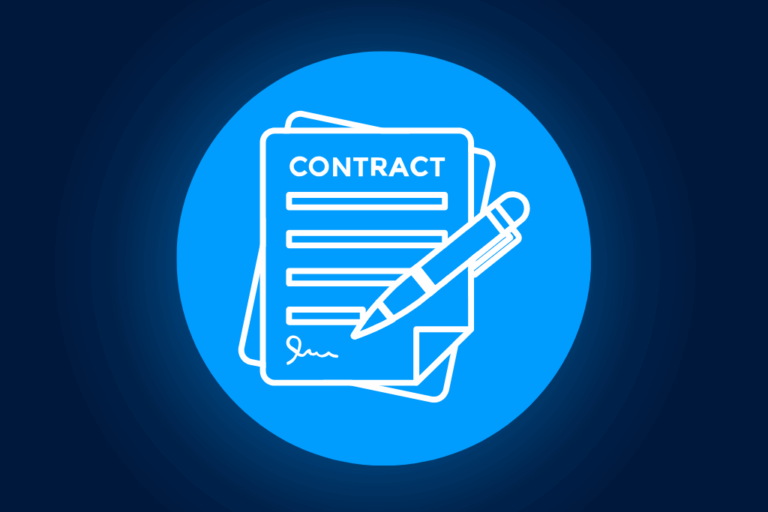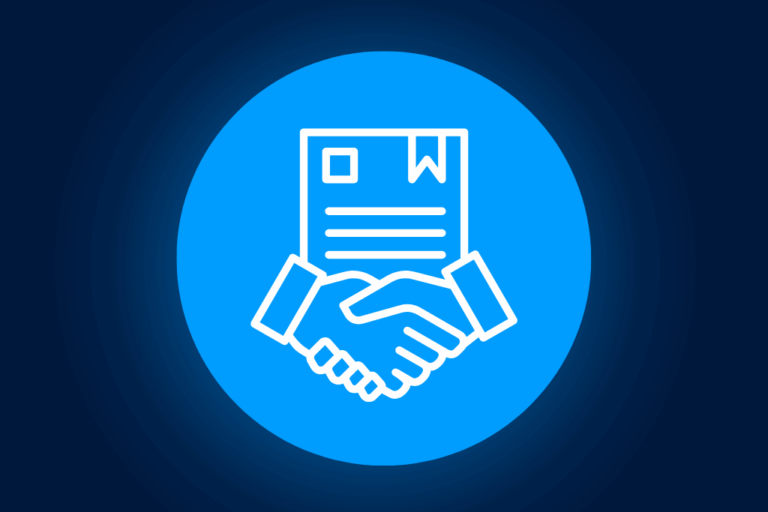Procurement contract management enables organizations to control costs, mitigate risks, and build strategic relationships with suppliers. As businesses navigate increasingly complex supply chains, effective contract management becomes essential for maintaining competitive advantage and ensuring operational efficiency. This guide explores the fundamentals of procurement contract management, outlines key challenges, and provides actionable insights on implementing technology-driven solutions to optimize your procurement processes.
Understanding procurement contract management
Procurement contract management encompasses the systematic administration of agreements between an organization and its suppliers or vendors. In short, this process extends beyond simple document storage to include strategic oversight throughout the entire contract lifecycle. Indeed, effective procurement contract management serves several critical business needs:
- Cost Control: Structured management helps identify savings opportunities and prevents unexpected expenses.
- Risk Mitigation: Proper oversight reduces exposure to compliance issues and performance failures.
- Relationship Enhancement: Strategic management builds stronger supplier partnerships.
- Performance Monitoring: Regular evaluation ensures suppliers meet quality and delivery standards.
For procurement teams, contract management represents a strategic function rather than an administrative burden. As a matter of fact, when executed effectively, it transforms procurement from a transactional activity into a source of business value and competitive advantage.
Key stages of the contract lifecycle
The procurement contract lifecycle follows a structured path from initial request through execution and renewal. Understanding each stage helps organizations develop appropriate strategies and allocate resources effectively.
1. Request and requirements definition
The lifecycle begins when a business need arises. During this stage, the procurement team works with stakeholders to:
- Define specific requirements for goods or services.
- Establish performance metrics and quality standards.
- Determine budget parameters and timeline expectations.
To begin with, clear requirements documentation serves as the foundation for successful contract management, thereby ensuring alignment between business needs and procurement activities.
2. Supplier selection and negotiation
Once requirements are established, the focus shifts to identifying appropriate suppliers and negotiating favorable terms. This stage includes:
- Evaluating potential vendors based on predetermined criteria.
- Conducting negotiations to secure optimal pricing and terms.
- Addressing legal considerations and compliance requirements.
Successful negotiation balances cost considerations with quality expectations, creating a framework for long-term supplier relationships.
3. Contract creation and approval
The contract creation phase transforms negotiated terms into formal agreements. Key activities include:
- Drafting comprehensive contract language.
- Incorporating specific performance metrics and deliverables.
- Establishing clear timelines and milestones.
- Securing necessary approvals from stakeholders.
This stage requires collaboration between procurement, legal teams, and business units to ensure the contract addresses all essential elements.
4. Contract execution and management
After signing, contracts enter the management phase, where ongoing oversight becomes critical. Activities include:
- Monitoring supplier performance against established metrics.
- Tracking delivery schedules and quality standards.
- Managing changes or amendments as business needs evolve.
- Ensuring compliance with regulatory requirements.
Effective management during this stage prevents performance issues and maintains alignment between contract terms and business objectives.
5. Renewal or termination
As contracts approach expiration, organizations must evaluate performance and determine next steps. Options include:
- Renewing existing agreements with current terms.
- Renegotiating for improved conditions.
- Terminating the relationship and seeking alternative suppliers.
This decision-making process relies on performance data collected throughout the contract lifecycle.
Challenges in procurement contract management
Despite its importance, procurement contract management presents several challenges for organizations across industries.
Fragmented information and visibility
Many organizations struggle with contract information scattered across multiple systems, departments, and formats. This fragmentation creates several problems:
- Difficulty tracking contract expiration dates and renewal opportunities.
- Limited visibility into supplier performance across the organization.
- Challenges in accessing contract terms when needed for reference.
- Inconsistent compliance monitoring and enforcement.
Without centralized contract information, procurement teams operate with incomplete insights, limiting their strategic effectiveness.
Resource constraints
Procurement departments often face significant resource limitations when managing complex contract portfolios:
- Insufficient staff to monitor numerous supplier relationships.
- Limited time for strategic analysis amid administrative demands.
- Inadequate tools for efficient contract administration.
- Competing priorities which reduce focus on contract management.
These constraints force teams to adopt reactive approaches rather than strategic management practices.
Compliance and risk management
Maintaining compliance across a diverse contract portfolio presents significant challenges:
- Evolving regulatory requirements across different jurisdictions.
- Complex supplier networks with varying compliance standards.
- Difficulty tracking obligations and commitments.
- Limited visibility into potential risk factors.
Without robust compliance monitoring, organizations face increased exposure to financial penalties, operational disruptions, and reputational damage.
Leveraging technology for effective contract management
Technology solutions transform procurement contract management by automating routine tasks, enhancing visibility, and providing analytical insights.
Centralized contract management platforms
Modern contract management platforms offer comprehensive functionality:
- Secure central repository for all contract documents.
- Automated alerts for key dates and milestones.
- Standardized templates for consistent contract creation.
- Permission-based access for appropriate stakeholders.
These platforms eliminate information silos, ensuring all team members work with accurate, up-to-date contract information.
The DiliTrust suite offers a comprehensive solution for procurement contract management, providing secure document management, automated workflows, and advanced analytics in a unified platform. With its Contract Lifecycle Management module, organizations gain complete visibility into their contract portfolio, ensuring compliance while optimizing supplier relationships.
AI-Enhanced analytics and insights
Artificial intelligence transforms contract data into actionable insights:
- Automated extraction of key terms and obligations.
- Pattern recognition across supplier performance metrics.
- Identification of optimization opportunities.
- Risk assessment based on contract language and performance history.
These capabilities enable procurement teams to make data-driven decisions rather than relying on intuition or limited information.
Integration with procurement workflows
Effective solutions integrate contract management with broader procurement processes:
- Seamless connection between sourcing and contract creation.
- Automated linkage between contracts and payment systems.
- Integration with supplier performance management tools.
- Connection to broader enterprise resource planning systems.
This integration creates a unified procurement ecosystem, eliminating redundant efforts and improving data consistency.
Best practices for procurement contract management
Organizations seeking to optimize their procurement contract management should consider these proven strategies.
Establish clear governance structures
Effective governance provides the foundation for successful contract management:
- Define clear roles and responsibilities for contract oversight.
- Establish approval workflows appropriate to contract value and risk.
- Implement consistent review processes for contract performance.
- Create escalation paths for addressing performance issues.
These structures ensure appropriate oversight while maintaining operational efficiency.
Standardize contract templates and processes
Standardization improves consistency and reduces administrative burden:
- Develop template libraries for common contract types.
- Create standardized approval workflows based on contract value.
- Implement consistent naming conventions and metadata.
- Establish uniform performance metrics across similar contracts.
These practices reduce contract creation time while improving quality and compliance.
Implement proactive performance monitoring
Regular performance assessment prevents problems and identifies improvement opportunities such as:
- Schedule periodic reviews of supplier performance.
- Track key performance indicators against contract requirements.
- Document performance issues and resolution efforts.
- Identify patterns across supplier relationships.
Proactive monitoring transforms contract management from document administration to strategic relationship oversight.
Invest in team development
Procurement excellence requires ongoing skill development, for instance:
- Provide training on negotiation techniques and contract law.
- Develop analytical capabilities for performance assessment.
- Build relationship management skills for supplier interactions.
- Ensure technical proficiency with management tools.
As a result, these investments transform procurement teams from administrative support into strategic business partners.
In conclusion, effective procurement contract management delivers significant business value through cost reduction, risk mitigation, and relationship enhancement. By implementing structured processes, leveraging appropriate technology, and developing team capabilities, organizations transform procurement from a transactional function into a strategic advantage.
Want to learn how our solutions support procurement excellence through enhanced contract management? Contact us today!



